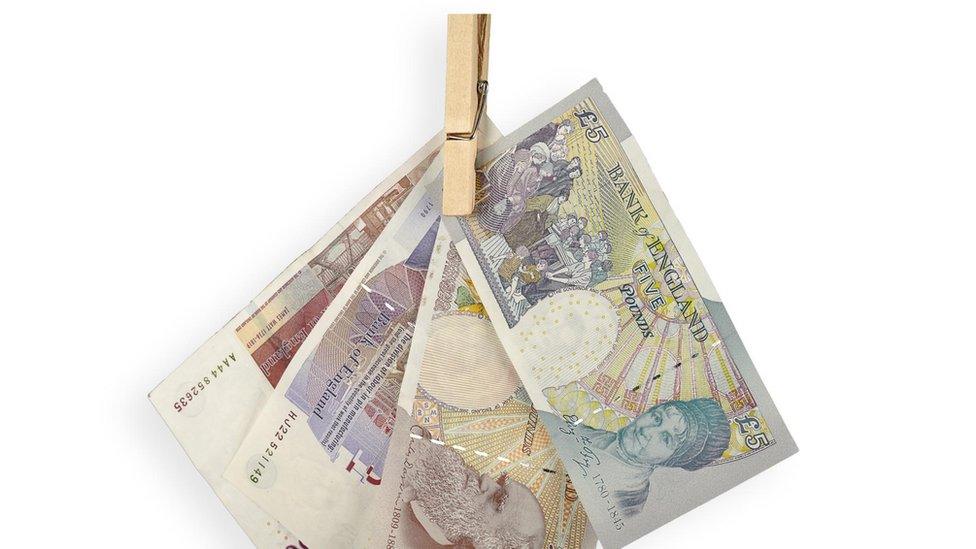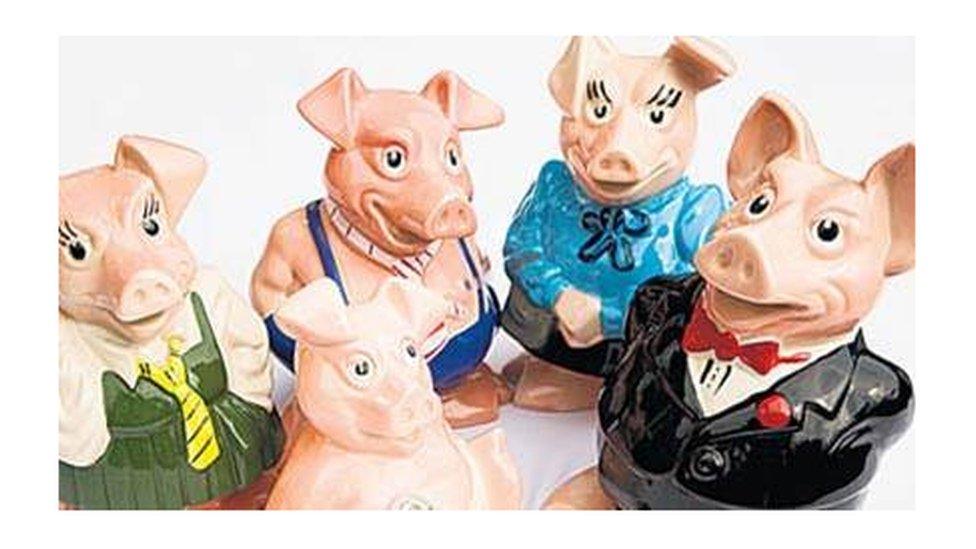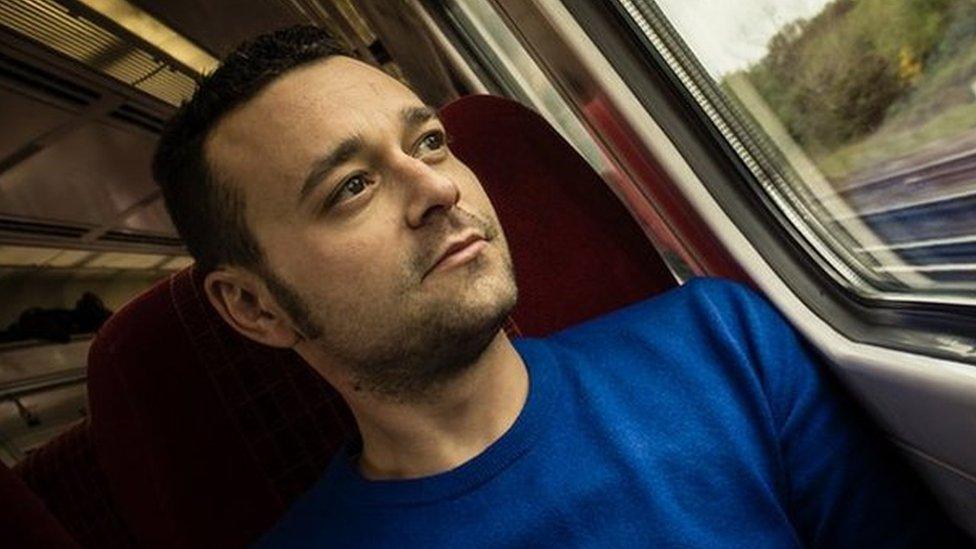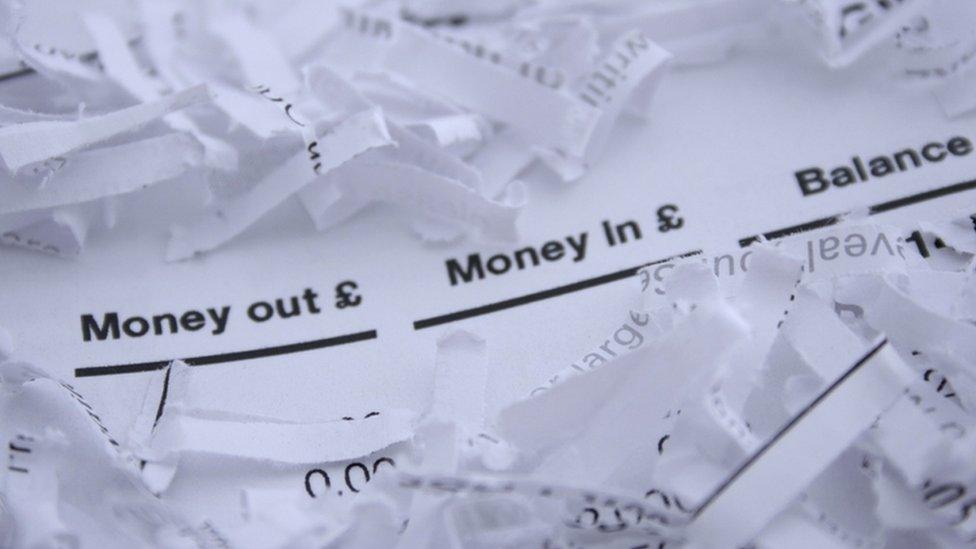Why banks offer cash for your custom
- Published

High Street bank the Halifax, in a whirl of advertising, has just increased its introductory cash incentive for anyone switching to its current account to £125.
It is not the only bank to be dangling a financial carrot in front of potential customers. First Direct recently raised its cash offer. A handful of banks at the top of the satisfaction league tables do something similar.
Incentives are nothing new in banking. Before the financial crisis, one lender was even giving a car free with a mortgage.
Cash - even a three-figure sum - feels positively penny-pinching in comparison to a new Rover, but it seems to be working.
"Rewarding switchers seems to be the biggest trend in the market right now," says Rachel Springall, of financial information service Moneyfacts.
Perks are being offered because banks are desperate for data. A current account reveals so much about a consumer's financial life that it allows banks to pinpoint the other products it can sell to that customer, and when.
Griffin Saver

The Griffin of Midland Bank appeared on various "gifts" for young savers

The pigs from NatWest have fetched money when sold subsequently
Many children of the 80s will fondly recall their first experience of bank incentives.
By sticking just £10 into a new account with Midland Bank, youngsters were given a pack of goodies including a sports bag, a dictionary and and maths set. It might not have been too cool at school, but it was a bunch of free stuff.
Others may have chosen the ceramic piggy banks from NatWest. Woody, Sir Nathaniel and the others are now collectors' items.
Nowadays, the student market is the hotbed for banking incentives.
Travelcards, Amazon vouchers and pizza discounts are being used as bait for teenagers opening an account before they head to university or college.
Clearly, banks love to attract students. Individuals are still incredibly loyal to their bank, so signing up somebody as they take on their first major financial responsibilities could mean many years of custom.
Student days are often dominated by debt. So, for the students themselves, an account with as big an interest-free overdraft as possible will often prove more valuable than an annual railcard, according to Andrew Hagger, of Moneycomms.

Banks are offering perks to students such as cheaper train travel
Price of perks
In addition to rising one-off cash payments, regular non-student bank customers have been offered a host of free incentives in the last couple of years.
Savers have been attracted with the offer of an iPad. Credit card customers have been promised free wine. Some homeowners taking out a mortgage have had a year of council tax paid for them.
"Over the years the banks have tried a variety of ways to differentiate themselves," says Kevin Mountford, of price comparison website Moneysupermarket.
"Sometimes the inclusion of certain perks has come at a price; packaged current accounts with varying benefits such as travel insurance or free overseas withdrawals, as an example, tend to come with an annual or monthly fee.
"Banks are trying to appeal to what people might want, but customers should look beyond any gimmicks or short-term incentives to make sure that the product is right for them and offers good value long term."
That is a view shared by Mr Hagger, of Moneycomms, despite the rising amounts of cash being offered.
"The danger is being blinded by three figures," he says.
He says those going overdrawn may find these accounts are expensive when it comes to the borrowing fees incurred. Frequent travellers may discover that the cash lump sum fails to compensate for the cost of using a card while overseas.
Quick switch

Switching bank accounts is no long the hassle that many of us still think is it
So many perks are being offered by banks in recent times owing, in part, to a new current account switching service, external.
The service has made it quicker and easier to go to a new bank, with a guarantee that the move is completed within seven working days and that all regular payments, such as direct debits, continue under the new account automatically.
Still, only 6% of consumers have switched current accounts in the last year, and 9% in the last one to three years, according to market researchers TNS.
That was a much smaller proportion than the 29% of car insurance customers switching providers in the last year, and 31% doing so in the last one to three years.
That is the subject of a review by the competition authorities into retail banking, given that there are 65 million active personal current accounts in the UK. The provisional findings are expected to be published in October.
TNS research does show that incentives are at the forefront of bank customers' minds when they do switch, however infrequently.
One in four leave a bank because, they say, the customer service has been rubbish.
The most popular reasons for deciding on which bank to move to are rewards and the convenience of branches, according to the research.
So, the one-off cash may well be the reason for Halifax, and perhaps online bank First Direct, gaining customers.
Santander, the biggest gainer in 2014, appears to have won from its consistent 3% interest offer.
Bad news for savers

Many current accounts offer higher interest rates than savings accounts
Many savings accounts have been unable to keep up with the interest being offered on current accounts, or the perks on offer.
Anna Bowes, of Savings Champion, says the current account market is more lucrative for banks.
Details of current account transactions alert banks to major life events and allow them to try to sell other products, such as insurance.
Current account holders still visit branches more regularly than those with savings accounts, she argues, offering another chance for banks to promote other, profitable, products while customers are inside.
Even so, she says there can still be a place for gimmicks.
If a free cuddly toy offered with a children's account means a youngster takes an interest in saving and money management, then that can only be a good thing for the future.